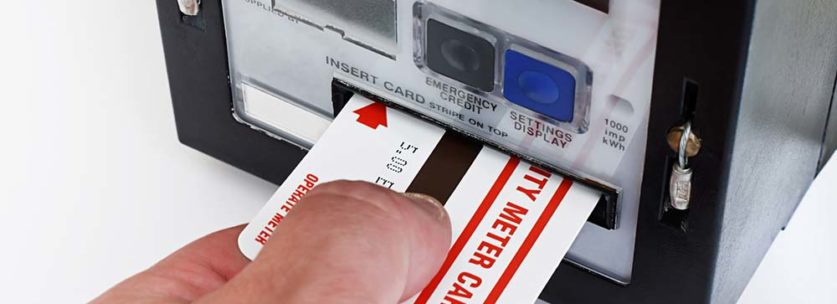
Energy suppliers may be required to quickly identify customers with prepayment meters who are self-disconnecting or self-rationing and extend them support, under new proposals from Ogem.
The regulator would require suppliers to offer credit and realistic repayment plans to such customers.
The energy market regulator is concerned by the numbers of households disconnecting from their prepayment meters each year because they’ve run out of credit and the negative impacts this may have on them.
Ofgem’s 2018 Consumer Engagement Survey found that one in 10 customers with a prepayment meter had temporarily disconnected from it, which equates to 450,000 electricity and 350,000 gas customers disconnecting each year.
Their findings echoed those by consumer advocate Citizens Advice, which found that 16% of prepayment customers are running out of credit each year.
The reasons customers run out of credit on their meters are complex and include struggles with affordability, forgetfulness, accessibility issues, consumer choice, and technical problems.
Citizens Advice found that in 2017 140,000 customers self-disconnected because they couldn’t afford to top up their meters. Of those households, more than half (56%) coped with cold homes while a third (35%) made do without light.
Ofgem also found that many customers are restricting their energy use to cut down on bills and that this self-rationing is more common among customers on prepayment tariffs than those with credit tariffs. The regulator cited research by charity Christians Against Poverty (CAP), which found in 2014 that 59% of their clients in financial difficulty were restricting their energy usage.
In 2017, CAP found that among their prepayment customers who were limiting their energy usage to curb their bills, a third (30%) were severely self-rationing, restricting their consumption to just a few hours a day or just a few days a month.
Households self-disconnecting or self-rationing their energy experienced significant negative physical and emotional impacts. Citizens Advice found that half of customers who disconnected reported negative effects, with the main impacts being feeling cold, having a dark home, and not being able to wash.
Meanwhile, cold homes led to significant health effects, especially for children and young people, including the exacerbation of existing health concerns including asthma and arthritis. National Energy Action (NEA), a fuel poverty charity, also highlighted the mental and physical effects of a lack of access to hot meals.
Consumers who self-disconnected or self-rationed also reported financial stress, embarrassment and shame, and reluctance to invite family and friends into the home, exacerbating isolation and mental health issues—concerns raised by Citizens Advice and NEA to the regulator.
To address rates of self-disconnection and rationing, Ofgem is proposing suppliers be required to quickly identify and offer them support, both against short-term problems and long term struggles with affordability.
The regulator notes that many suppliers offer “friendly and emergency credit,” a buffer that prevents customers from disconnecting at inconvenient times, including overnight and on weekends and Bank Holidays when they may not be able to top up.
However, this provision is poorly advertised and may not be extended to all consumers, especially gas customers. Ofgem is therefore proposing that emergency credit be extended to all pre-payment customers and that information is provided to ensure customers understand how the credit is extended and how it is repaid.
Suppliers could also be required to offer discretionary credit to customers experiencing short-term difficulties affording to top up their meter.
Alongside these immediate remedies, customers experiencing repeated and prolonged self-disconnections will need longer term support. This might include incorporating Ofgem’s Ability to Pay principles into supply licences. The principles, first set forward by Ofgem in 2010, are designed to ensure suppliers consider customers’ ability to pay when setting repayment plans.
The regulator is seeking responses from the industry and stakeholders about these proposed measures over the next month.




